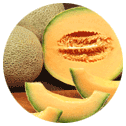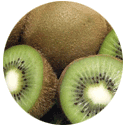 Full List of Fruits
Full List of Fruits  Betel Nut
Betel Nut
Betel Nut Fruit
Scientific name - Areca catechu
The nut is soft inside, when the husk of the fruit is green in color. Commercially available in almost all forms like dried, fresh and cured, betel nut also known as areca nut is a fruit categorized as a drupe. If truth be told, they are not a true nut; in fact it can be cut with a knife. The husk turns into yellow and orange, when the fruit is ripe. Upon drying, the fruit in the interior hardens to a wood-like consistency. The tradition of chewing the mixture of areca nut and betel leaf dates back to thousands of years and it is followed much in the South Asia eastward to the pacific. They are chewed basically for the effects it lets out; it acts as a mild stimulant causing a very slight sensation in the body with heightened alertness, having said that, it differs from person to person. The outcome of chewing them together is nothing effective, but relatively mild and it is often compared to that of drinking coffee and tea.
![]() Nutritional Value of Betel Nut
Nutritional Value of Betel Nut
1. Rich in Antioxidants: Betel nut is rich in antioxidants, which can help protect against cell damage caused by free radicals. This can help protect against diseases like cancer and heart disease.
2. Improves Digestion: Betel nut contains compounds that can help improve digestion. This can help reduce the symptoms of digestive problems such as indigestion, diarrhea and constipation.
3. Improves Oral Health: Betel nut contains compounds that can help reduce plaque and gingivitis. This can help improve oral health and reduce the risk of gum disease.
4. High in Nutrients: Betel nut is a good source of many essential vitamins and minerals, including zinc, iron, magnesium, calcium and potassium. These can help improve overall health.
5. Weight Loss: Betel nut can help in weight loss by increasing metabolism and suppressing appetite.
Overall, betel nut is a nutritious, low-calorie snack that can have many health benefits. However, it should be consumed in moderation as it can have some side effects, such as nausea and dizziness.
| Cal | 339k |
| Protein | 5.2g |
| Fat | 10.2g |
| Carb | 56.7g |
| Thiamine/B1 | 19mg |
| Riboflavin/B2 | 10-12 ppm |
| Niacin/B | 31.1mg |
| Sodium | 76mg |
| Potassium | 450mg |
| Calcium | 400mg |
| Phosphorous | 89mg |
| Iron | 4.9mg |
Chewing betel leafs with areca nuts is said to have some systemic effects on health. Making it a habit is said to have a greatly increased risk of developing a range of serious diseases.
People who use betel nut, may experience the following:
 Tremors
Tremors
 Dizziness
Dizziness
 Upset stomach, diarrhea, vomiting ,
Upset stomach, diarrhea, vomiting ,
 Psychosis
Psychosis
Just like any other fruit requirement, with the same basic level things, even betel nut palm is propagated only by seed; however the method depends on the number of palms desired. Sources say that, circumspectly selected seeds are placed in the ground for it to take roots, but in shaded beds or pits until they sprout, later on, the seedlings are transplanted to nursery areas for growing on. Saplings that have more than five leaves are planted out at an age of 12-24 months.
Betel nut has a long history of use in traditional medicine and is often used to treat a variety of ailments, including fever, dysentery, and indigestion. Betel nut is also believed to be beneficial for improving mental clarity, concentration, and alertness. In addition, it has been used as an aphrodisiac, as an anti-inflammatory, and as an analgesic for toothache and headache. Betel nut is also thought to have anti-cancer properties and to have the ability to reduce cholesterol levels. Betel nut is also widely used for its psychoactive effects, which can range from mild stimulation and improved mood to altered consciousness and euphoria. The stimulant effects of betel nut are similar to those of caffeine, but the effects tend to last longer. Betel nut can also produce feelings of relaxation and euphoria, as well as increased alertness and mental clarity.
Betel nut is often used in religious and cultural ceremonies, as it is believed to have spiritual benefits. In India, betel nut is chewed with betel leaves and spices as part of a ceremony before weddings and other special occasions. In some cultures, betel nut is used as an offering to the gods and is believed to bring good luck.Betel nut is also used in traditional medicine, often in the form of betel nut powder. Betel nut powder is used to treat a range of ailments, including fever, indigestion, and dysentery. It is also believed to have anti-inflammatory and analgesic properties and to have the ability to reduce cholesterol levels.


















